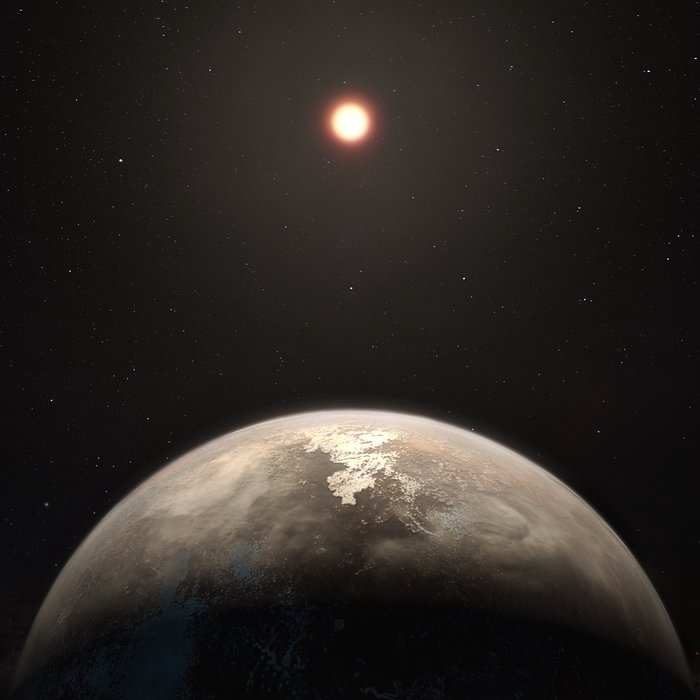A new Earth-sized planet located only 11 light years away from our Solar System has just been detected by astronomers at the Earth Science Observatory or ESO. The newly discovered exoplanet, which has been designated Ross 128 b, is the closest one found orbiting an inactive red dwarf star, increasing the chances of the planet hosting alien life. The exoplanet was found by a team of scientists using the planet-hunting HARPS instrument. Scientists estimate that the newly discovered exoplanet likely has temperatures similar to Earth. After Proxima b, Ross 128 b is the second closest temperate planet to be found.
"Ross 128 b will be a prime target for ESO's Extremely Large Telescope, which will be able to search for biomarkers in the planet's atmosphere," the ESO said in a statement.
The exoplanet has been named after its host star – Ross 128 – which it orbits every 9.9 days. Scientists found that the exoplanet orbits Ross 128 around 20 times closer than the Earth orbits the Sun. Interestingly, in June, astronomers detected mysterious signals coming from Ross 128.
According to the ESO, red dwarf stars are some of the "coolest, faintest and most common" stars in the Universe, which make them the best targets for astronomers to search for when hunting potential alien worlds.
"In fact, lead author Xavier Bonfils (Institut de Planétologie et d'Astrophysique de Grenoble – Université Grenoble-Alpes/CNRS, Grenoble, France), named their HARPS programme The shortcut to happiness, as it is easier to detect small cool siblings of Earth around these stars, than around stars more similar to the Sun," the ESO explained.
Unlike most other red dwarf stars including Proxima Centuri, which occasionally experience flares that in turn expose their orbiting planets to deadly ultraviolet and X-ray radiation, Ross 128 in comparison is much a "quieter" star. This may help Ross 128 b's chances of being the closest known "comfortable abode for possible life".
Scientists say that Ross 128 is slowly moving closer toward our Solar System and is expected to become our "nearest stellar neighbour in just 79,000 years – a blink of the eye in cosmic terms". When this eventually happens, Ross 128 b will usurp Proxima b's position as the Earth's closest exoplanet.
However, despite scientists' belief that Ross 128 b is likely a temperate exoplanet, there appears to be some uncertainty as to whether the planet lies within the habitable zone.
Ross 128 b's location – either inside, outside or on the edge of the habitable zone – could determine whether the planet's surface could contain liquid water.
The findings of this research are slated to appear in the journal Astronomy & Astrophysics.
Via IBTimes

